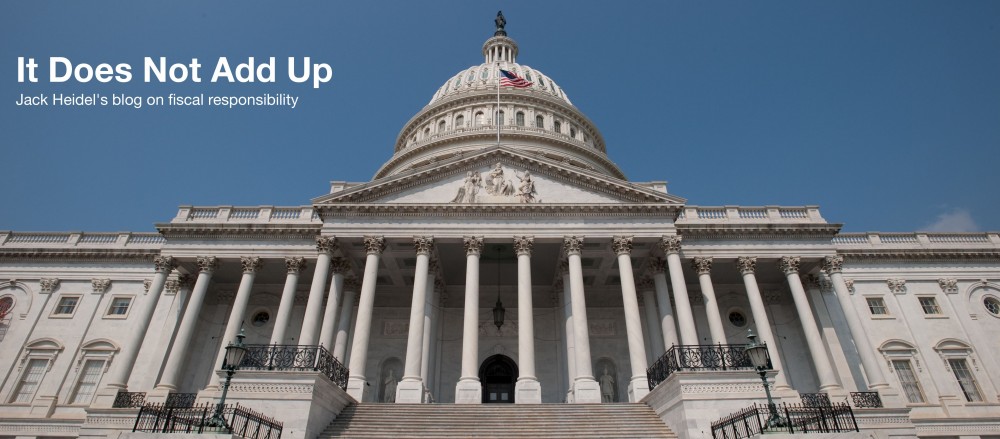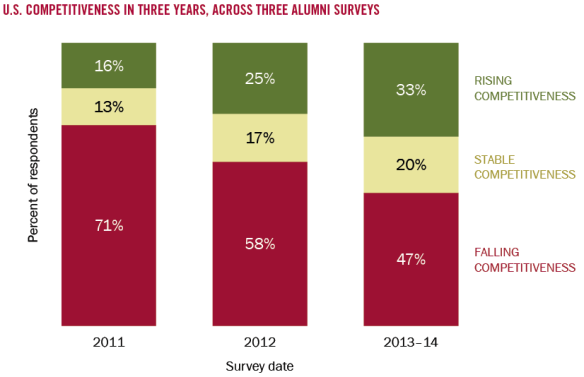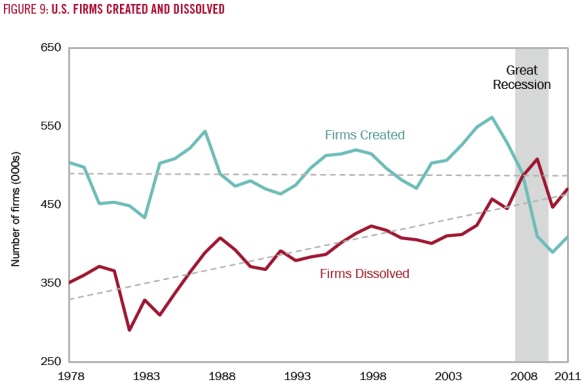Income inequality is a serious political issue these days as it should be. America’s future well-being depends on widely shared prosperity. One of the very best ways to lessen inequality is to increase mobility into the middle class.
 The political and economic analysis group, FiveThirtyEight, has just reported new data (see above) that “Mid-tier Jobs Are Seeing Less Growth.” The middle class has already been hollowed out by the gale-wind forces of globalization and technological advancement. Now the Great Recession, and the slow recovery from it, has made things that much worse. It’s long past time to focus on middle class recovery.
The political and economic analysis group, FiveThirtyEight, has just reported new data (see above) that “Mid-tier Jobs Are Seeing Less Growth.” The middle class has already been hollowed out by the gale-wind forces of globalization and technological advancement. Now the Great Recession, and the slow recovery from it, has made things that much worse. It’s long past time to focus on middle class recovery.
The best way to do this is to make the economy grow faster as follows:
- Tax Reform. Lowering individual rates should be the first priority, paid for by closing loopholes and shrinking deductions for the wealthy. This will give middle- and lower-income workers more money to spend and encourage startup small businesses. Lowering corporate tax rates, again offset by shrinking deductions, will incentivize multi-national corporations to bring their profits back home for distribution or reinvestment.
- Increase the Earned Income Tax Credit, paid for with some of the increased revenues from shrinking deductions for the well-to-do. This will encourage more people to take and hold onto entry level low-wage jobs, thus increasing the size of the workforce.
- Putting More Emphasis on Career Education in High School. Not everyone wants to or needs to go to college. There are lots of well-paying middle class jobs for high skilled workers and a shortage of workers for these jobs in many labor markets.
- Miscellaneous. Immigration reform, trade expansion, and easing regulations on small business would also help grow the economy.
Economic growth since the end of the Great Recession in June 2009 has averaged a meager 2.3%. Speeding up growth is the best way to raise wages and lower unemployment at a much faster rate. This is the best way to boost middle class jobs!


